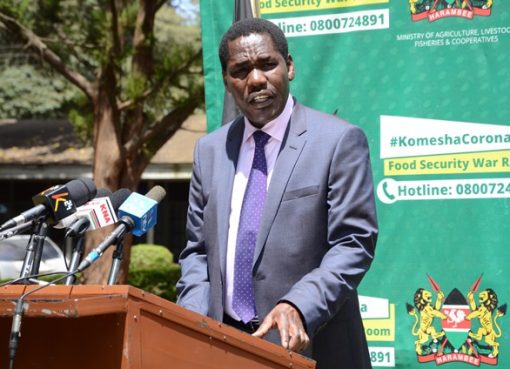Ernest Onyona, a dedicated lay counselor deeply involved with social services in Kisumu County, has unveiled the profound impact of the government’s recent injection of funds into the Inua Jamii Cash Transfer Programme, specifically tailored to uplift the elderly demographic within the community.
Highlighting the essential components that render this initiative a beacon of support for senior citizens, Onyona shed light on the mechanics behind the programme being implemented by the State Department for Social Protection.
“Every beneficiary is granted 2,000 shillings, serving as a crucial financial lifeline. These funds are channeled through various reputable banks, including Kenya Commercial Bank, Cooperative Bank, Postbank, National Bank, Equity Bank, and Kenya Women Finance Trust,” explained Onyona.
He elaborated on the intricacies of the financial aid, emphasizing the creation of special accounts exclusively designated for this purpose, thereby distinguishing them from standard accounts. Eligibility criteria encompass age verification (70 years and above), possession of a valid identification card, and exclusion from other pension schemes.
Onyona underscored the significance of physical appearance during the registration process, labeling it as “proof of life” to mitigate discrepancies where deceased individuals might still be listed as beneficiaries.
“In collaboration with the national government, involving chiefs, assistant chiefs, village elders, and pertinent departments, we ensure transparency in reaching beneficiaries. Caregivers assume a pivotal role, receiving payments on behalf of those unable to independently visit banks,” Onyona remarked.
Acknowledging the challenges encountered by elderly individuals, particularly those with disabilities, the programme is introducing M-PESA payments. “We are prioritizing individuals with disabilities for this new payment method, enabling them to conveniently receive payments from nearby agents,” Onyona affirmed.
He further highlighted the initiative’s cognizance of the arduous task of queuing in crowded banks, particularly for older citizens, leading to the introduction of innovative solutions to address such issues.
The establishment of local committees within beneficiaries’ villages stands as a testament to the programme’s commitment to ensuring timely follow-ups and addressing concerns promptly, thereby enhancing its overall responsiveness.
In pursuit of continuous enhancements, Onyona outlined efforts aimed at mitigating challenges associated with untrustworthy caregivers.
“We are diligently working to ensure that every beneficiary has a reliable caregiver, facilitating seamless follow-ups in the event of any issues,” he assured.
Beyond the tangible financial aid provided, the programme has yielded inspiring success stories, with beneficiaries leveraging on the support to construct homes and kick-start thriving entrepreneurial ventures.
As the Cash Transfer Programme continues to evolve, it remains a cornerstone of governmental efforts to uplift and empower the elderly population, underscoring the commitment to fostering inclusive and resilient communities across the nation.
By Beryl Akinyi and Quinter Atieno



